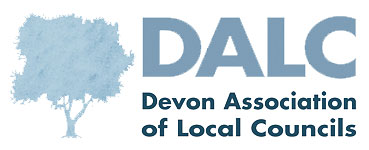General Power of Competence

The General Power of Competence was introduced in the Localism Act 2011 and is a power of first resort, enabling an eligible local council to do anything an individual might do.
Where does the power come from?
The Localism Act 2011 introduced the General Power of Competence (GPoC) to allow eligible local councils to have more freedom in their actions. It is often referred to as the power of first resort so when a council is looking for a power to act, their first question can be whether they can use the GPoC.
What is an eligible council?
An eligible council is one which meets the following criteria:
- At least two thirds elected members. This means at least two thirds of your councillors must have been elected, not co-opted. Elected can include councillors elected at contested election, or at an uncontested election.
- A qualified clerk. This means that the clerk of the council must hold the Certificate in Local Council Administration* (a level 3 qualification) and/or one of the higher education qualifications (level 4 or above) such as the Certificate of Higher Education in Local Council administration.
*read more about our training programme to support clerks and officers to achieve their CiLCA here.
How do we adopt the power if we’re eligible?
An eligible council will need to formally adopt the General Power of Competence at a meeting of the full council. You can do this by having an agenda item to adopt the power, and the council then resolving to adopt it. Once you have resolved to adopt it, the council retains the General Power of Competence until after the next election where it will need to have an agenda item to check whether or not it is still eligible.
| Not still eligible | Still eligible |
| The council can continue any projects started when it had the power but cannot start any new ones. | The council can adopt the power again for the next four years. |
How do I know if my parish council has the General Power of Competence?
If you have joined the council since the last election and are unsure whether your council has the power, you can ask the clerk or another officer, or you can look back through the council’s minutes since the last election; if the council has adopted the General Power of Competence there will be a minute stating this. If there is no relevant minute since the last election, then the council has not adopted the GPoC.
What can it be used for?
The power can be used to do anything an individual might do, with a few restrictions:
- you must still act within the law
- if an individual can’t do it, then you cannot use the general power (although may be able to use other powers such as for raising a precept).
- if what you intend to do conflicts with a duty of another local authority (such as the provision of education) then you will still be able to help out but only in ways an individual could.
Some examples of when parish councils might use the power are below.
| Donate money to Ukraine | Councils without the GPoC cannot donate money to charities outside the UK |
| Run a community shop | Provided the council abides by relevant rules, it could run a community shop with the GPoC |
| Engage in commercial activity | A council with GPoC can do this if it sets up a company or cooperative society for that purpose. |
More information
There’s more information in NALC’s advice note on general powers available to local councils.
Section 137
You don’t have permission to view the content
Powers and Duties
You don’t have permission to view the content
